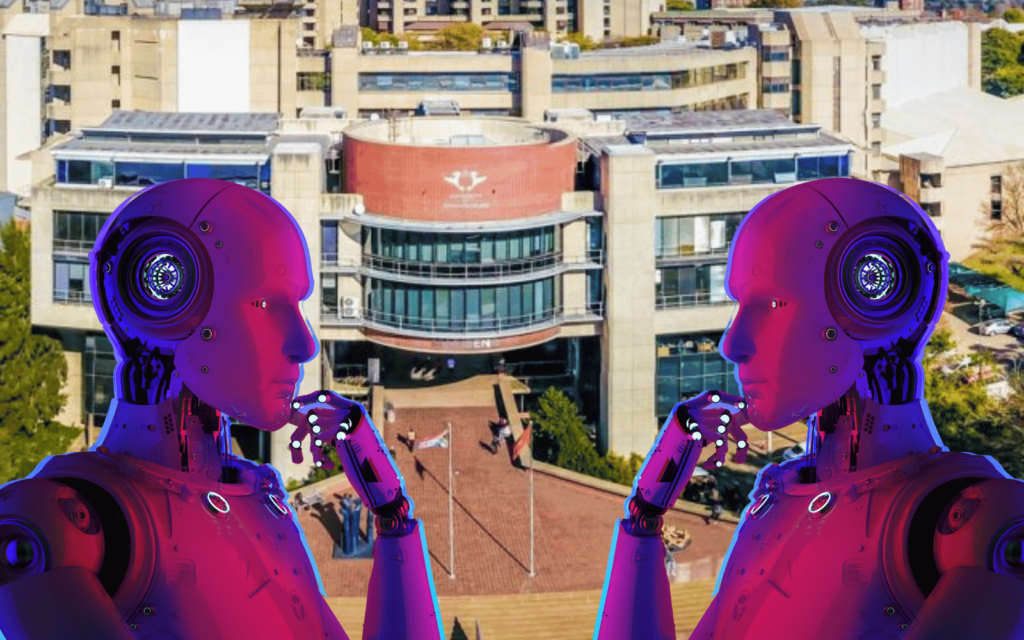In a bid to either counter the impending doom of the world at the hands of AI or help bring it about quicker, the University of Johannesburg (UJ) and the Tshwane University of Technology (TUT) are making AI courses mandatory for all qualifications available at the school.
“The study of Artificial Intelligence is being made a compulsory course in all qualifications in the University of Johannesburg to empower its graduates to advance in all areas of work,” UJ Principal Tshilidzi Marwala said.
The sudden desire for compulsory AI courses came after the launch of the Department of Communications and Digital Technologies’ AI institute, in which it partnered with both UJ and the Tshwane University of Technology.
Dubbed the ‘AI Institute of South Africa (AIISA)’, communications minister Khumbudzo Ntshavheni said that the institute is needed to stamp out unemployment in SA’s youth, and give students the tools to become job creators in their own space. The institute will have two main hubs – one at each of the schools the AIISA has partnered with.
Its long-term goal is to eventually have a series of networks, linking the hubs to “key catalytic projects across the country… across the continent,” said Ntshavheni.
Read More: Amazon’s Create with Alexa uses AI to animate stories for kids
Play to your strengths
She went on to say that the schools wouldn’t spend time and money on building these hubs from the ground up. Instead, they would focus on work that’s already underway. This means that each school’s AI hub will focus on industries specific to them.
Where TUT is concerned, the institute will focus on building up auto manufacturing, tourism, transport, farming, healthcare, and telecommunications.
UJ on the other hand is more business orientated, leaning on retail, manufacturing, transport, tourism, retail, agriculture, digital mining, fintech, the energy sector, digital banking, and the justice system.
“The recommendation to develop the institute was centred around a need to establish a common base to focus on the application of AI to health, agriculture, finance, mining, manufacturing, and government alongside regulations,” says Marwala, a member of the Presidential Commission on the Fourth Industrial Revolution.
The AIISA is still in the early days of its conception, meaning it could take a while for the lessons to become mandatory. It’s possible that AI courses could be mandatory as early as next year. We’ll have to wait and see.
Source: MyBroadband




